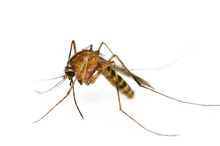A Lake Charles veterinarian, Ted Shope of South Bayou Animal Hospital, reports that he has seen more than a dozen cases of Eastern equine encephalitis in the past three weeks, and the only horses that are still alive are the two that were vaccinated.

Mosquitoes causing more EEE cases
The presence of an EEE positive horse confirms that there are infected mosquitoes in the area that could possibly transmit the virus to people and other animals.
He says horse owners should make sure their animals are vaccinated for mosquito-borne diseases, including West Nile and Eastern equine encephalitis.
State Agriculture Commissioner Mike Strain made the same recommendation in mid-July.
Shope recommends a combination vaccine which protects horses against West Nile, Eastern equine encephalitis and Western encephalitis.In addition to vaccination, horse owners can take steps to reduce their animals’ exposure to mosquitoes. If possible, owners should also keep their animals inside barns if possible from dusk through dawn, when mosquitoes are most active.
Symptoms in horses include depression, loss of appetite, drooping eyelids and lower lip, aimless wandering and circling, blindness and sometimes paralysis. There is no cure for horses; the disease must run its course. Most animals die or must be euthanized, but a few recover.
In addition to cases in horses and humans, an eight week old puppy in Lansing Michigan succumbed to Eastern Equine Encephalitis this past week.
EEE is caused by a virus transmitted by mosquito bite to horses, birds, and humans. The virus is not transmitted between animals or between animals and humans. But the presence of an EEE positive horse confirms that there are infected mosquitoes in the area that could possibly transmit the virus to people and other animals.
